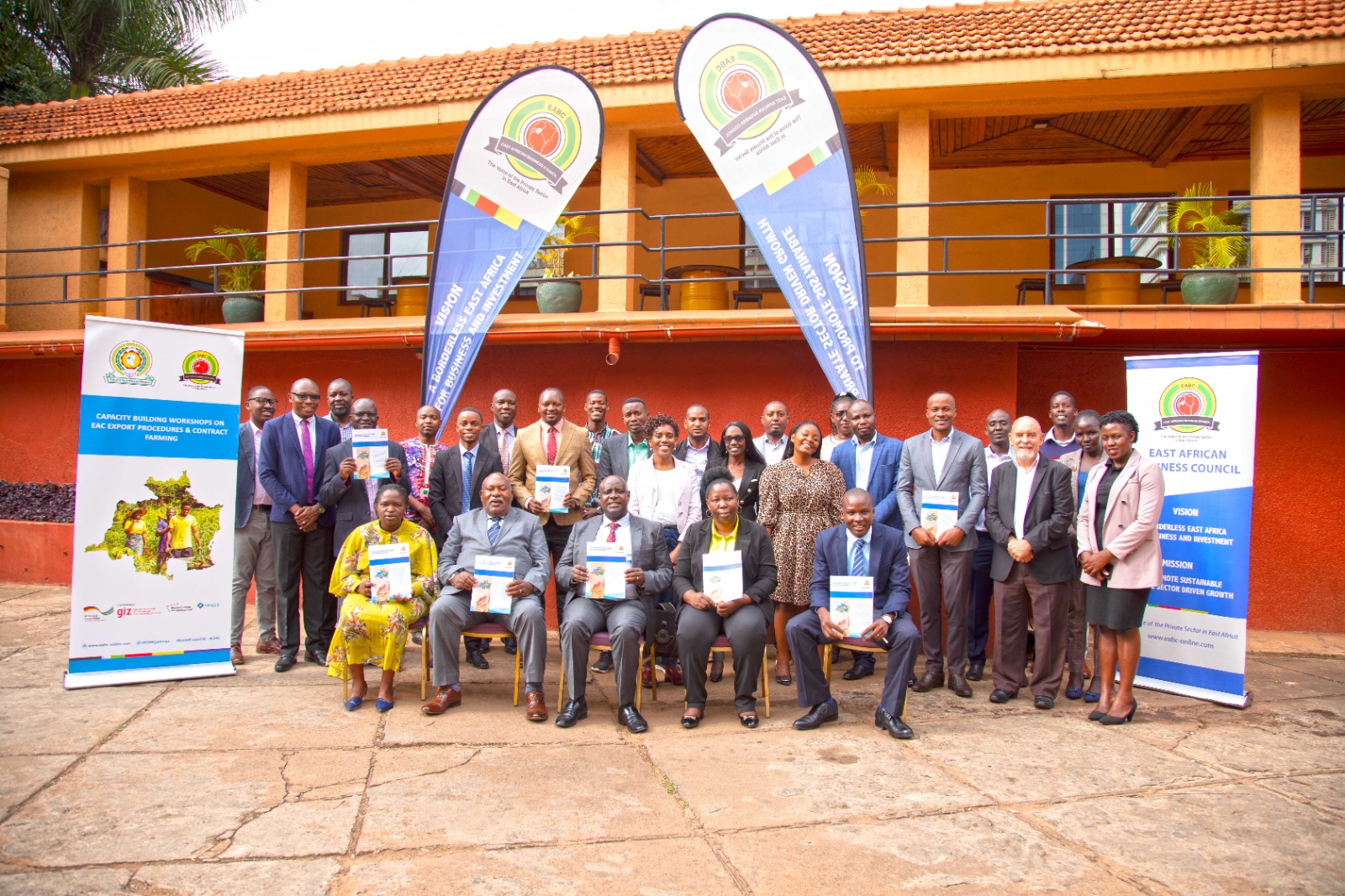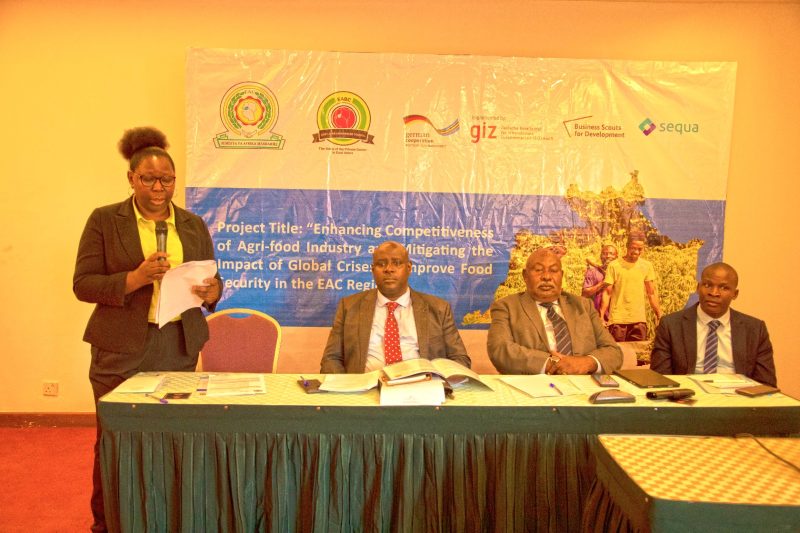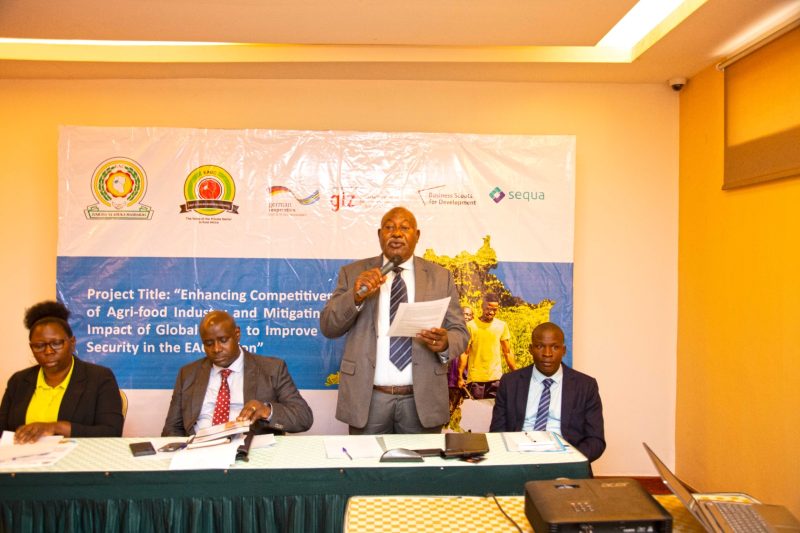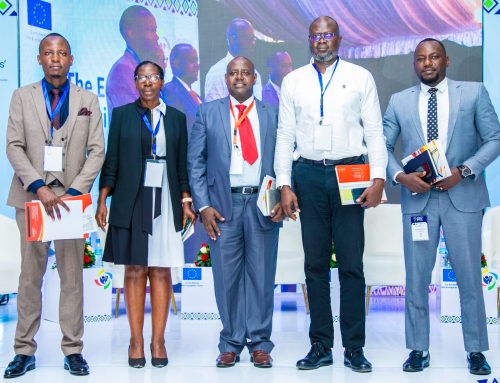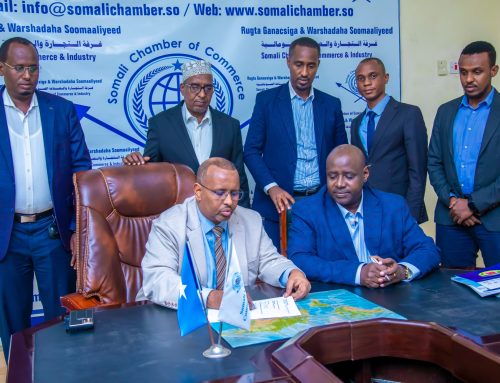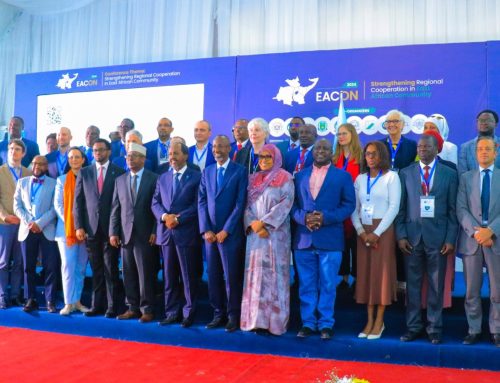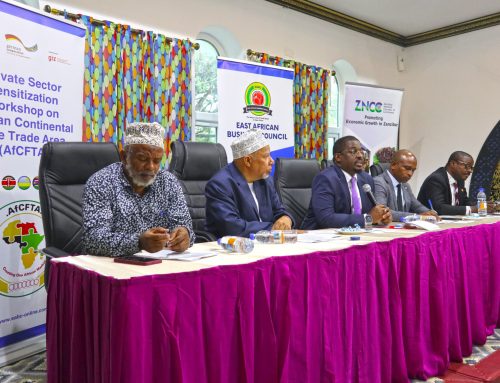Monday, 24th July 2023, Kampala, Uganda – Mr. Businge Wilson Rwabwogo, an EABC Board Member, underscored that the EAC, like other regions, has faced challenges due to the pandemic, global economic shocks, and climate change. He pointed out the importance of improving food security, especially as some EAC countries had low food security index scores prior to the COVID-19 pandemic.
Mr. Rwabwogo highlighted the studies conducted by GIZ under the Business Scouts Fund, which assessed the impact of global crises on food security in the EAC region and identified investment opportunities in selected agriculture value chains.
The Regional Masters Training of Trainers (ToT) Capacity-Building Workshop on EAC Export Procedures & Contract Farming, organized by the East African Business Council (EABC), aimed to enhance the competitiveness of the agri-food industry and improve food security in the East African Community (EAC) region. The event was made possible through the generous support of German Development Cooperation (GIZ) under the Business Scouts Fund in the implementation of the project with EABC, titled “Enhancing Competitiveness of Agri-food Industry and Mitigating the Impact of Global Crises to Improve Food Security in the EAC Region.”
The Chief Guest, Dr. Sarah Kagoye, Principal Agricultural Business Officer from the Ministry of Agriculture, Animal Industry, and Fisheries, Uganda, commended the workshop for emphasizing value chain integration at a time when the Government of the Republic of Uganda is implementing the National Development Plan under the theme of “Agro-industrialization.” She reiterated the government’s commitment to promoting productivity, nutrition security, farm and off-farm employment opportunities, value addition, and trade in agricultural products.
Representing Mr. Philipp Glaeser, Head of International Component, GIZ Business Scouts for Development, Ms. Lydia Koch said, “GIZ-Business Scouts is committed to supporting food security. The workshop will improve associations’ knowledge on contract farming and export procedures and facilitate knowledge sharing on best practices across East Africa.”
On behalf of Mr. Stephen Asimwe, Executive Director of the Private Sector Foundation Uganda (PSFU), Mr. Martin Maku, Sector Coordinator for Agriculture, Agribusiness & Forestry, PSFU, stated that increasing agricultural productivity is central to improving food security and achieving the EAC Vision 2050.
In his address, Mr. Rwabwogo emphasized the potential of the EAC’s agriculture sector, highlighting staple foods such as cereals, roots, tubers, and legumes. However, he also acknowledged the hindrances faced by the sector, including limited access to improved seed varieties, high seed costs, low adoption of improved seeds, and challenges related to climate change, soil fertility, and pests.
The EABC Board Member called for investment in the agriculture sector, citing statistics that indicated an increase in total foreign direct investment (FDI) in the EAC region, with most FDI directed towards manufacturing, construction, and services rather than agriculture.
The workshop focused on capacity building and sensitization of key agri-actors in EAC Export Procedures and Contract Farming, aiming to equip participants with the knowledge necessary to mitigate the impact of global crises on food security in the region.
In his remarks, the EABC CEO, Mr. John Bosco Kalisa, called for the formation of an East African food security alliance. He highlighted the significant challenges posed by global crises, including the Covid-19 pandemic, conflicts, and climate change, on the region’s food security and agricultural sectors. He acknowledged the disruptions caused by the global crisis, affecting supply chains, transportation, and the availability of agricultural inputs, leading to food insecurity for millions of people in the East African Community (EAC).
The CEO emphasized the urgency of addressing these challenges through collective action and meaningful partnerships.
The Master Trainers Capacity-Building Workshops on EAC Export Procedures and Contract Farming were organized as a crucial step towards enhancing the competitiveness of the agri-food industry and mitigating the impact of global crises on food security in the EAC region. The workshops aimed to empower agri-actors with knowledge and expertise in these key areas, enabling them to contribute to building resilience in the region’s food systems.
Prof. Ojijo Nelson and Mabala Moses shared the latest updates on contract farming and export procedures in the EAC.

